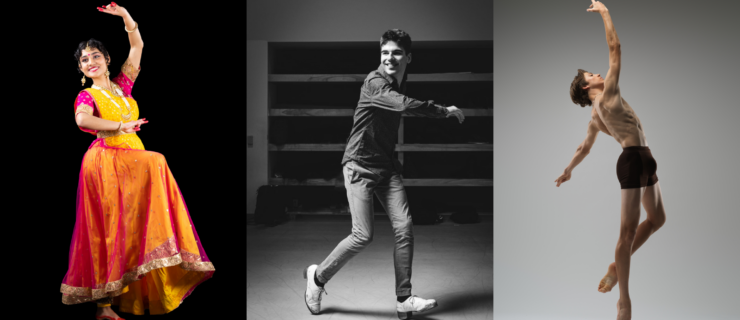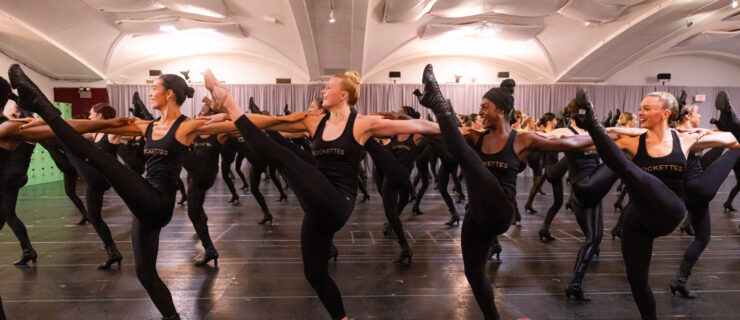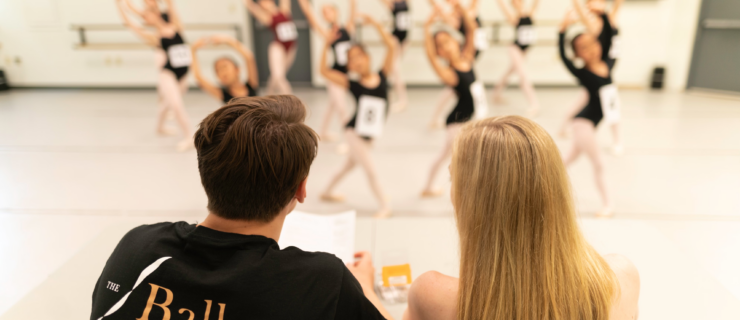The Skills You Need to Make It in Broadway
July 31, 2007
It used to be that a gorgeous extension, clean pirouette and explosive jump could land you a job on Broadway. Now, technique and commitment to dance just aren’t enough, and competition studios are grooming dancers who can tumble and flip, too. In addition, dwindling budgets mean that even the biggest shows on the Great White Way are hiring multitasking performers who dance, sing, act and even play instruments.
To be the type of grab-bag dancer that will nab the job, start gathering as many skills as possible—you want to make sure that at any audition, you can be like
A Chorus Line’s Mike and respond, “I can do that!� Start with the areas below to expand your range while continuing to perfect your dance foundation.
A Chorus Line’s Mike and respond, “I can do that!� Start with the areas below to expand your range while continuing to perfect your dance foundation.
Find Your Inner Athlete
A recent audition notice for the upcoming Broadway production of
High School Musical stated that breakdancing, tumbling and acrobatic skills were a plus. At more and more open calls, dancers are asked to stay in the studio after their dance audition and show any tumbling or “freezes� (shoulder or wrist poses like those done in breakdancing or gymnastics) they have in their arsenal. If you’re just getting started, cartwheels, round-offs and walkovers are toned-down versions of fast-paced tumbling that are reasonably easy to learn and will allow you to add yourself to the hand-raisers. Worried about your strength and stamina? Consider joining a gym to add cardio, weight lifting, Pilates or yoga to your regimen. Don’t let a somersault stand in your way of standing out!
High School Musical stated that breakdancing, tumbling and acrobatic skills were a plus. At more and more open calls, dancers are asked to stay in the studio after their dance audition and show any tumbling or “freezes� (shoulder or wrist poses like those done in breakdancing or gymnastics) they have in their arsenal. If you’re just getting started, cartwheels, round-offs and walkovers are toned-down versions of fast-paced tumbling that are reasonably easy to learn and will allow you to add yourself to the hand-raisers. Worried about your strength and stamina? Consider joining a gym to add cardio, weight lifting, Pilates or yoga to your regimen. Don’t let a somersault stand in your way of standing out!
Express Yourself
In musical theater, you’re often not only a dancer; you’re a character helping to move the plot along. So how can you beef up your acting skills? Books by acting coaches and performers like Lee Strasberg, Uta Hagen, Konstantin Stanislavsky and Stella Adler can help you learn about motivation, action and dramatic conflict. Even better than academic sources, however, are practical scene classes at an acting school, where you can explore your emotional “instrument� and study how to embody different characters, speak in dialects and relate to other actors onstage. Many colleges also provide inexpensive introductory acting classes that you can audit. When you’re prepping for auditions, make sure to have two monologues—one contemporary (think Neil LaBute or Theresa Rebeck) and one classical (Shakespeare)—ready to perform. If two equally talented dancers are up for a principal role, acting chops can tip the scales.
Sing Out, Louise!
Since many companies can’t afford to hire separate dancing and singing ensembles (and few shows have any roles that don’t require both), a quiet dancer has to learn to raise her voice. “Many dancers are reluctant to sing, but using your voice on a daily basis will help you become comfortable with this essential ability,� says Rick Hip-Flores, a musical director and composer in NYC. “If possible, see a vocal coach, but if nothing else, find a friend who plays piano to help you go through your vocal material.� If you make it through the dancing portion of the audition but have no material to sing when called back, you appear unprofessional and lopsided. Have your audition book ready with selections from classical musical theater (Gershwin and Cole Porter), contemporary shows (Jason Robert Brown and Jonathan Larson) and pop/rock artists.
You may also want to learn to play an instrument. According to Hip-Flores, “the piano is the most helpful instrument to learn, because you’re a one-person orchestra. You can pick out your part, learn harmonies and understand theory.� Instruments like the guitar and violin, on the other hand, are more mobile. Look for free online guides to put you on the path to musicianship before you decide if you’re ready to commit to private instruction.
Broaden your horizons
If these outside activities have you itching to get back into the studio, expand your class selection to include various cultural dance forms. With shows like
The Pirate Queen (featuring traditional Irish dancing), In The Heights (Latin and hip hop) and The Lion King (African dance) making their marks on Broadway, familiarity with a variety of movement vocabularies could give you a leg up in an audition.
The Pirate Queen (featuring traditional Irish dancing), In The Heights (Latin and hip hop) and The Lion King (African dance) making their marks on Broadway, familiarity with a variety of movement vocabularies could give you a leg up in an audition.
Regardless of your budget and time constraints, ensuring that you’re a complete performer will give you confidence at an audition—and make it that much easier for the creative team to pick you over the dancer who can’t sing harmony or do a headstand. Your dance base will always support you, but the branches of your artistry should reach further to enhance your performance.Â
Lauren Kay is a dancer, writer and dramaturge based in NYC.



